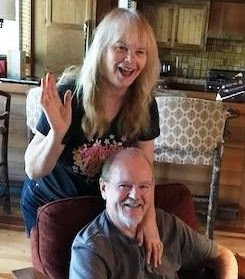Okay, I was just trying to attract your attention with the
blog title. I’ll admit it up front. But I have been thinking about social media
and it’s effects on our culture, both positive and negative. I think it is
wonderful to see the updates in friends’ lives – weddings, babies born, new
pets, job changes – all the good things that make up our journey on this earth.
But there are things that concern me, some deeply.
It is natural to compare ourselves to others and social media
is a perfect platform to evaluate our relative status. I have heard that kids
in their teens can become depressed when they see friends participating in
activities that they have not been invited or allowed to join. This leaves them
feeling less popular, isolated and anxious. It is true that kids are probably physically
safer in their rooms at home, connected with others online. But from an
emotional standpoint, they are at a higher risk of mental struggles, even
suicide. From a developmental perspective they miss out on the subtleties of
face-to-face connection. There are facial cues and body language interpretation
skills that are underdeveloped when they don’t spend enough time around others.
Another concern that I have is that we tend to post our “wins”
on social media, and not our losses. This gives an incomplete picture of our
lives and promotes envy from others who are comparing themselves to us. I
believe this could be borderline dishonest or at least really unhelpful. Consider
the following possibilities:
- I’m struggling financially and you post pictures of your expensive vacation or new car.
- My kids have never been “student of the month”, but yours have.
- I’m single and you boast of married bliss (and keep posting your wedding pictures)
- I hate my job and you seem to keep advancing in your career joyfully and effortlessly.
You get the point, I’m sure. Maybe if we also shared our
places of disappointment and discouragement, others would not feel so alone.
I also think we can risk looking superior as we post our
wins, but others’ failures. We won’t comment on personal relationships (unless
we are really toxic), but we feel entitled to share all kinds of negative
opinions about situations we are not part of, and people we don’t know. The
result is we can make ourselves appear unsafe to others. People may distance
from us and we won’t know why. Our intention might be to be part of a solution,
but really we are just part of the problem. I have noticed that people with no
real solutions will often shout on social media, but people with viable
solutions will quietly take action.
What I want to suggest is that we can use social media to
lift people up as much as we lift ourselves up. And I think sharing
(appropriately and wisely) some of the struggles we face will draw people
towards us. Finally, by steering clear of shaming, blaming and criticizing we will
be following the closing blessing that we often hear at church:
May the words of my mouth and the meditation of my heart be pleasing to you, O Lord, my rock and my redeemer. Psalm 19:14

